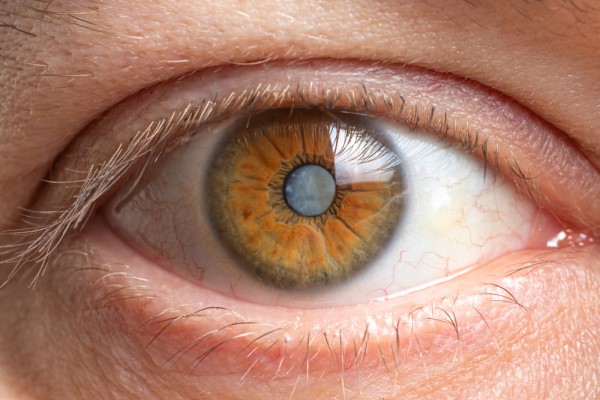When to Consider Surgery for Cataract Treatment

In this review, we primarily focus on surgical treatment for cataracts. We also discuss cataracts more broadly, focusing on why they develop and the signs and symptoms that patients often notice that lead to them seeking treatment.
Here is what you should know about cataract treatment and surgery
Developing a cataract can be a scary experience. The good news is that surgery often provides reliable, long-term relief. Here is everything to know about cataract treatment and surgery to help patients decide the best path for dealing with their cataract(s) in the long term.
What is a cataract?
A cataract occurs when there is clouding in the clear part of the lens. This can develop slowly over the course of a year or more and primarily impacts adults over the age of 40. Cataracts develop due to proteins in the eye lens breaking down and clumping together. The signs may start small and then grow progressively worse if there is no treatment intervention. The most common signs of cataracts are:
- Blurred vision
- Seeing "halos" around lights
- Sensitivity to light
- Inability to see in dim light
- Loss of vision (for severe cases)
Regular check-up visits with an optometrist are ideal for detecting cataracts as early as possible. Patients should also check for signs of sight complications and notify their optometrist if any concerns develop. For instance, many patients discover that they have a cataract by not being able to read the way that they used to and/or by needing to change their prescription eyeglasses.
What are the different types of cataract treatments?
Patients should seek treatment for cataracts as soon as possible, as they are not likely to improve on their own and may grow progressively worse. There is only one way to treat a cataract, which is via a surgical procedure to remove it.
However, in some cases, a management plan may be a better solution for the patient, depending on the severity of the cataract(s) and the patient's treatment preference. In particular, the management plan, rather than surgery, may be recommended if the cataract is not severe and the patient is not able or willing to go through a surgical procedure.
The recommended treatment depends on the severity of the cataract(s) and the patient's preference. Previous treatment history and genetic information may also play a role in determining the best course of action.
When is surgery recommended by an optometrist?
Surgery is the only effective cataract treatment. For minor cataracts that do not seem to worsen, a change to prescription glasses may serve as a temporary treatment. However, this does not cure the cataract. Therefore, to ensure long-term relief of the cataract and to avoid it worsening, surgery is typically recommended by optometry professionals.
What can I expect during cataract surgery?
Cataract surgery involves a tiny incision being made in the eye to remove the cataract and replace the cloudy lens with a clear plastic one. Patients typically do not feel any discomfort during the procedure. The surgeon provides an anesthetic to help the patient relax and to numb the area. Overall, it is a minimally invasive procedure that usually takes less than an hour to complete.
What risks are involved with cataract surgery?
There are certain risks associated with cataract surgery (as is the case with all surgical procedures). The most common long-term complication is posterior capsular opacification (PCO). This is also referred to as a "second cataract" and occurs in approximately 20% of patients. Fortunately, PCO is easily resolved with a laser procedure in most cases. Patients can expect certain side effects after having cataract surgery, including the following:
- Temporary eye inflammation
- Temporary eye discomfort
- Minor bleeding
- Sleepiness
- Drooping eyelids
The side effects should go away within a few days. In rare cases, infections can develop. The eye doctor should provide a list of post-care instructions to help control eye inflammation and discomfort. A follow-up visit is also usually scheduled to further ensure that no complications result from the procedure.
Contact our optometry office today to schedule a visit
A consultation visit with a licensed optometrist is the best way to determine if cataract surgery (or another form of cataract treatment) is right for you. Here at our office, we provide diagnostic services and can help you put together a treatment plan based on the severity of your cataract. Please do contact us today in order to receive more information and to schedule a visit.
Get more information here: https://www.texasoptical.net or call Texas Optical at (214) 771-7333
Check out what others are saying about our services on Yelp: Read our Yelp reviews.
Recent Posts
Dry eye treatment is important when occasional irritation becomes ongoing discomfort that interferes with daily activities. Many individuals experience dryness, burning, or a gritty feeling in the eyes from time to time. However, when symptoms start to affect reading, screen use, or time outdoors, a structured approach to diagnosis and care helps protect comfort and…
Myopia control focuses on slowing the progression of nearsightedness, primarily in children and teens, to help protect long-term eye health and day-to-day vision. Myopia occurs when the eye grows too long or the cornea curves too steeply, which causes distant objects to appear blurry. As the prescription increases, the risk of future eye disease also…
Retinal photography gives optometrists a detailed view of the back of the eye. When done regularly, they are often able to spot early signs of disease before symptoms affect daily vision. This advanced imaging tool helps create a clear record of eye health over time and supports smarter decisions about treatment and follow-up care. Learning…
Red, itchy eyes can affect your everyday comfort and reduce overall well-being. It is important to seek effective vision care from the first sign of irritation. Proper attention to symptoms, underlying causes, and healthy habits ensures stronger long-term eye health and greater day-to-day clarity. Redness and itchiness often stem from several common triggers. These include: Allergic…


